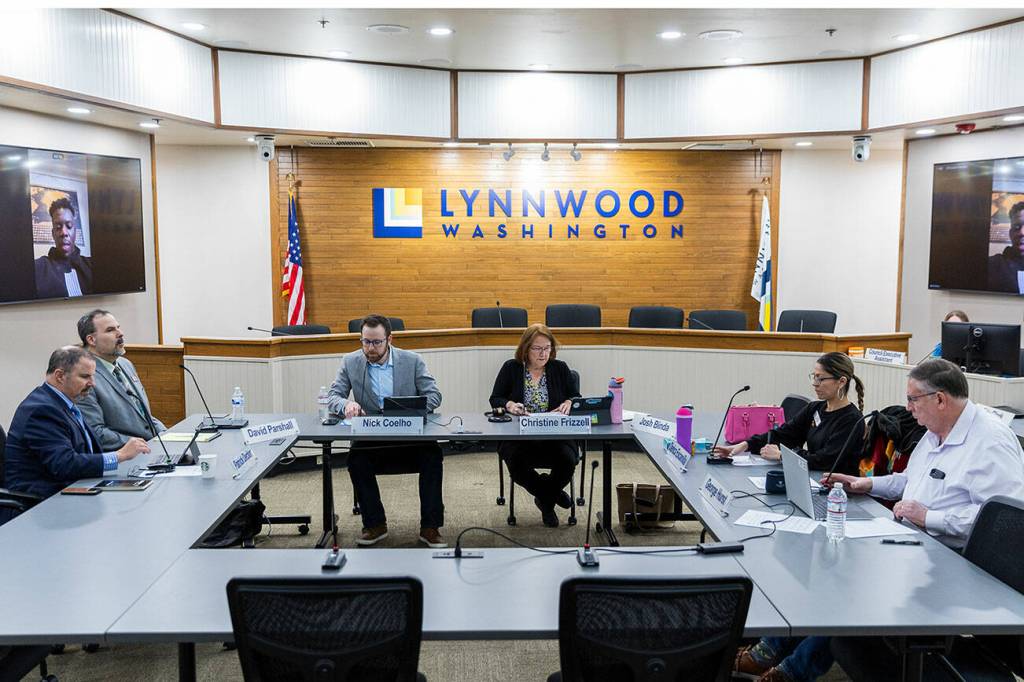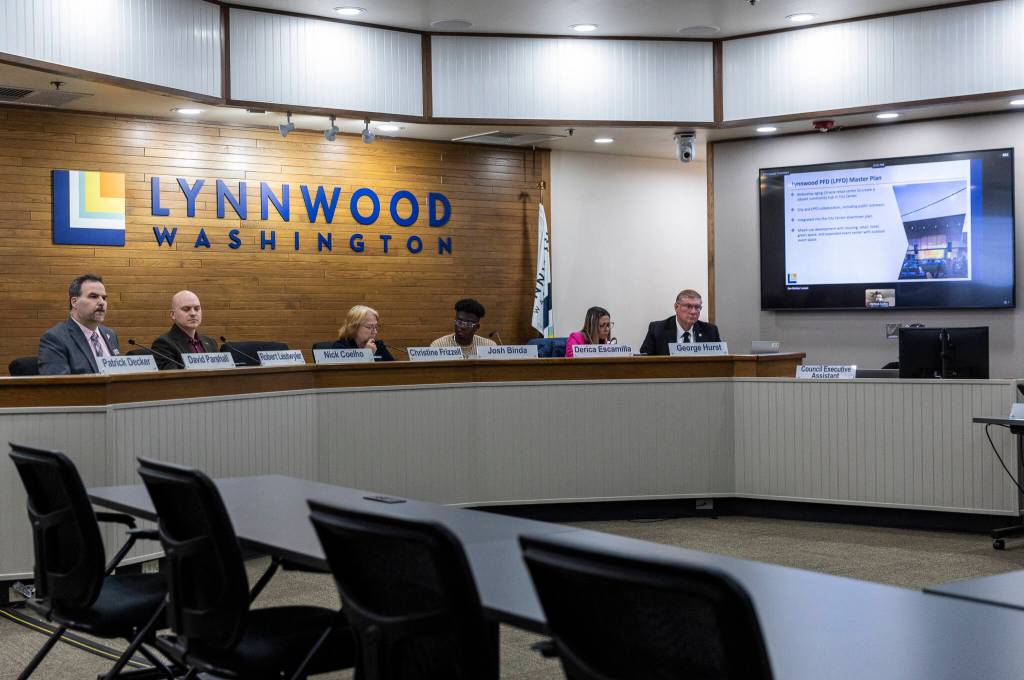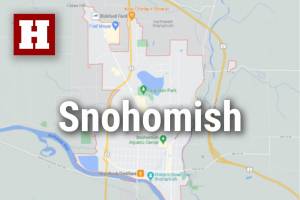Lynnwood raises property, utility taxes amid budget shortfall
Published 1:30 am Tuesday, November 25, 2025


LYNNWOOD — The Lynnwood City Council approved a 24% property tax increase and raised some utility taxes to 10% Monday.
The changes come as the city faces a $25 million budget deficit. In July, Mayor Christine Frizzell announced the deficit, which mostly stems from lower-than-expected revenues from sales tax, development and red-light cameras. After a slew of cuts and policy changes, the general fund has an $8 million operating gap for 2026, finance director Michelle Meyer said Monday.
The city could have raised property taxes by $3.85 million — or a 53% increase — without voter approval. Council member and mayor-elect George Hurst proposed the 24% increase, or $1.7 million, which he called a “compromise.”
“The council will not fix this in November,” Hurst said. “I beg you to let a new administration look at this, do what we have to do this year, then the new administration can start looking and see if we can resolve some things besides having tremendous tax and fee increases.”
The increase will go into effect in January. The change will decrease the $8 million gap by $1 million, as a $700,000 property tax increase was already included in the budget. The 24% increase will raise property taxes by $85 a year for the average home valued at $663,705. Last year, the city increased property taxes by 52%, or $144 per year.
The council approved the increase by a vote of 4-3. Council President Nick Coelho, council Vice President Josh Binda and council member David Parshall voted against the motion. Coelho and Binda said they wanted a larger increase to further bridge the city’s deficit.
“We have essential services in our city that we have to fund,” Coelho said. “(Residents) aren’t choosing whether or not to pay these. We have to make that decision. It’s really uncomfortable, I’ll acknowledge that, but someone’s got to make these decisions. So I wonder if we can rise to the occasion.”
The council also approved increases to water, sewer, surface water and solid waste services — from 6% to 10%. The change decreases the general fund gap by $1.9 million.
The utility tax increases passed by a vote of 4-3. Council member Patrick Decker, Parshall and Hurst voted against the motion, advocating for solutions besides further raising taxes. The city hadn’t increased utility tax rates since 2015.
“I don’t think there’s a strong argument that we are being overly ambitious and raising taxes here far and above what is a reasonable increase,” council member Robert Leutwyler said. “I think this is just an example where you have to pay for things somehow. We have a compromised property tax levy, I think this is still a compromised approach to the utility tax.”
Assuming the city implements higher business license, permit and vehicle tab fees, the city estimates a $3.1 million gap for 2026, Meyer said. The city will likely have to make up that amount in cuts, she said.
Hurst, who will serve as mayor beginning in January, said he plans to look at additional budget changes next year, including a public safety sales tax, street fund reductions and wage freezes. He also plans to put a citizen budget panel together, similar to a panel Edmonds created to brainstorm solutions for its budget deficit.
“I’m looking at 2026 as a year of austerity and a year of trying to fix things,” Hurst said. “Instead of continually looking at more revenue, more fees, more taxes, we need to start thinking about what else we can do.”
Jenna Peterson: 425-339-3486; jenna.peterson@heraldnet.com; X: @jennarpetersonn.






